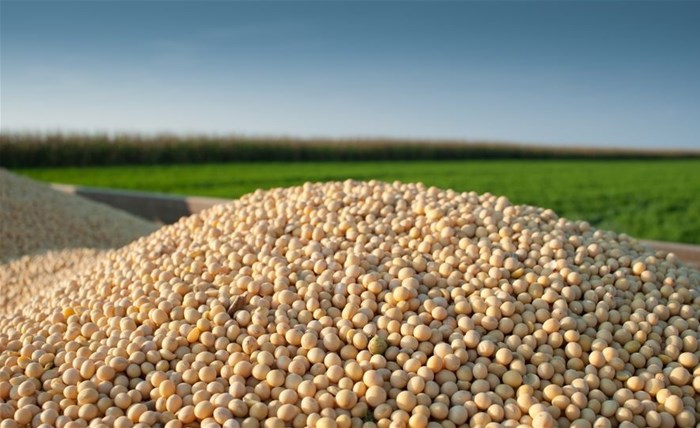From 1 March 2019 producers will be charged a statutory levy of R65 for every ton of soya beans sold. This statutory levy was introduced by the Ministry of Agriculture, Forestry and Fisheries after a request from role-players in the industry, represented by the Sunflower and Soybean Forum.
Use of farm-saved seed
The purpose of the levy is to encourage seed companies to introduce new cultivars with advanced technology to the local market. South African soya bean producers mainly plant farm-saved seed from the previous season. The South African National Seed Organisation (SANSOR) estimates that up to 80% of soya bean plantings in the country are done with farm-saved seed.
It is common practice worldwide to retain a portion of the harvest of open-pollinated crops to plant again in the next season. One of the disadvantages of this practice is that new seed sales are relatively low and hence it is not profitable for seed companies to invest in developing new and improved cultivars.
Drawbacks of seed retention
The high level of seed retention in South Africa is contributing to the stagnation of the soya bean industry and makes it increasingly difficult to compete in the world market. It takes up to a decade of research and development, and costs several millions of rand, to develop one improved cultivar. If seed breeders cannot expect good sales, they will be reluctant to incur these costs.
According to the Bureau for Food and Agricultural Policy (BFAP) South African soya bean producers currently compete with the USA, Brazil and Argentina, whose yields have increased by up to 1,5% per year over the last decade. South African soya bean yield over the same period improved by around 0,4% per year. One of the most important reasons for the slower improvement, is a shortage of new cultivars and biotechnology.
The average yield in the USA, for example, is around 3,5t/ha, while in South Africa it is less than 2t/ha (Figure 1). The local average soya bean yield over the last 20 years is 40% lower than the average yield of the three main producers worldwide.

Figure 1: International average yields of soybeans. (Sources: SAGIS and FAOSTAT)
A popular crop
The demand for protein is increasing worldwide and soya is a massive component of animal feed, but also for human consumption.
Soya bean plantings in South Africa have increased sharply over the last 50 years, from less than 10 000 ha to 787,000 ha in 2017/2018 (Figure 2). Recent investments in crushing capacity and the promotion of soya beans’ contribution to crop rotation systems, have convinced many producers to include it in their summer grain production plans.

Figure 2: South African soya bean area and average yield since 1970. (Sources: SAGIS and BFAP)
In 2017 soya beans overtook sunflower as the second largest summer grain in terms of area planted. BFAP estimates that South Africa will plant up to one million hectares of soya beans per season in the next five to ten years.
SACTA’s role in the levy
The technology levy that kicks in on 1 March 2019, is collected and administered by the SA Cultivar and Technology Agency (SACTA). It is payable on the first sale of soybeans produced in South Africa, regardless of the grade.
SACTA is a non-profit company that collects the levy and distributes it among seed companies, based on their market share. This is to guarantee compensation for their investment in developing advanced seed technology.
The levy is effective from 1 March 2019 to 29 February 2020. Thereafter the levy will increase to R80 per tonne until 28 February 2021.













































